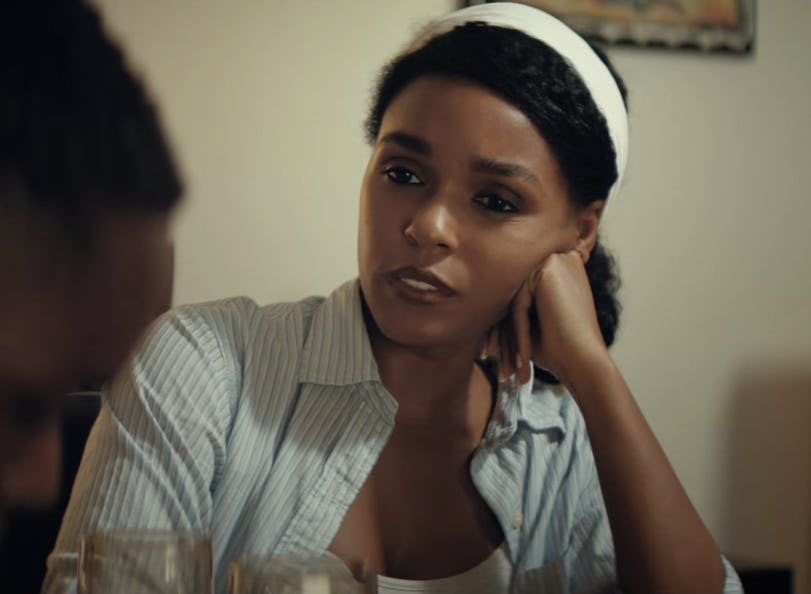Moonlight is one of those rare moviegoing experiences where I’m simultaneously blown away by it and so mad at it because I know when it’s over, I can never see it for the first time again. And that isn’t to say I’m not excited to watch it again, because I feel like Barry Jenkins made this film with enough nuance that new things can be spotted and appreciated on multiple viewings. I also want to praise something that I usually hate about movies: the trailer. The trailer elicits a feeling and tone about the film, it doesn’t tell me any plot details. So good job to whoever cut that trailer together. While I’m at it, just look at this poster:

That is beautiful. But I digress. We’re here to talk about a movie, aren’t we?
Right from the jump, you can tell this movie is going to be unique. I really hope James Laxton gets some recognition come awards season because his cinematography throughout the film is breathtaking. The opening scene sees Mahershala Ali’s Juan exit his car and walk over to one of his dealers who is dealing with an unruly, ahem, client. All the while, Laxton has us moving all around Juan and it creates a tension for this exchange that sets up the tightness you’re liable to feel in your chest for the entire film. Beyond just the movement of the camera is the look of the film. There are three sections of the film that are separated by title frames Chiron (the protagonist) as an adolescent, as a teen, and then as a young man. In each one, the look is distinctive to mirror the growth of the character which is another smart and interesting move from Laxton.
Also adding to the tension is Nicholas Britell’s score. He also scored last year’s The Big Short and 2012’s Gimme the Loot (which I highly recommend), so I knew it would be great before I saw Moonlight, but he really exceeded my expectations. It’s not only his score, either, but the sound design of the film as a whole. The moments that sound drops out and we only have the score or we’re just forced to sit in silence with the characters on screen are the kinds of decisions that take good films that step further to become great ones. All the little decisions like that seem to have been made in Moonlight which all comes back to praise for Barry Jenkins for pulling it all together.
And while I’m praising Mr. Jenkins, someone needs to give that man an award if only for getting the performances he does from this many child and teen actors. Everyone is pulling their weight in this one, and we’ve all seen what it looks like when a young actor just pulls a project down (sorry, Modern Family). And while I’m praising acting, let me say a little bit about two small but key characters in the film.
 Mahershala Ali was so fantastic, the only thing I didn’t like about him was that he wasn’t in the film more. We’ve seen the drug dealer with a heart of gold trope before, but Jenkins successfully subverts that trope and gives us a drug dealer with a heart, but not necessarily of gold.
Mahershala Ali was so fantastic, the only thing I didn’t like about him was that he wasn’t in the film more. We’ve seen the drug dealer with a heart of gold trope before, but Jenkins successfully subverts that trope and gives us a drug dealer with a heart, but not necessarily of gold.
 Then there’s Janelle Monáe, who hasn’t even been in anything else live-action, just lighting up the screen every time she’s on it. If this performance is any indication, I think we should be seeing her in a lot more than just Hidden Figures in her future acting career.
Then there’s Janelle Monáe, who hasn’t even been in anything else live-action, just lighting up the screen every time she’s on it. If this performance is any indication, I think we should be seeing her in a lot more than just Hidden Figures in her future acting career.
All three actors playing Chiron and Kevin were so great as well, it wasn’t a stretch to believe they were the same person across several years. The only one I knew beforehand was André Holland from The Knick, who plays adult Kevin, but I can see any of the other 5 doing many more great things for years to come. Trevante Rhodes specifically is amazing as adult Chiron, embodying a pent up aggression and fear in everything from the way he moves to the way he speaks.

The movie is a coming-of-age story in the truest sense of the term since it covers roughly 15-20 years in a young man’s life. It’s a very important movie when it comes to discussions of bullying, class, sexual identity, lots of things. One of the best undercurrents in the film has to do with the protagonist’s name. The sections are named after what the protagonist goes by at that point in his life. Section 1 is “Little” which is a nickname given by the ones he hates (the other kids). Section 2 is “Chiron” which is the name his mother gave him, a person who hates him if the film up to that point is anything to go by. And then part 3 is “Black,” a name given by someone the protagonist loves. This combined with a conversation early on that Mahershala Ali has with Little about your name is very telling about the message of the movie about the power of words and names especially.
If you get the chance, check this movie out in a theater. You won’t be sorry.
